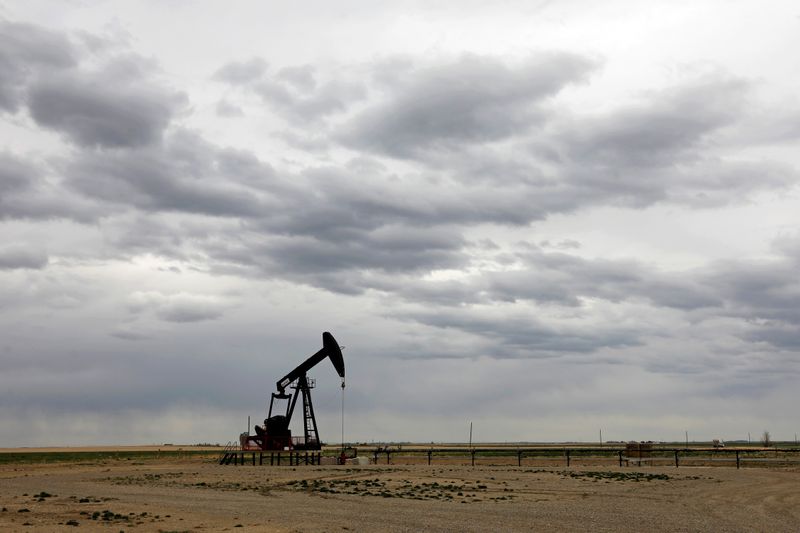By Aaron Sheldrick
TOKYO (Reuters) - Oil prices fell on Friday after China failed to set an economic growth target for 2020, sparking concerns that the fallout from the coronavirus pandemic will cap fuel demand in the world's second-largest oil user.
Brent crude was trading down $1.38, or 3.8%, at $34.68 a barrel by 0420 GMT, after falling as low as $33.54.
West Texas Intermediate (WTI) crude dropped by $1.79, or 5.3%, to $32.13 a barrel, having slumped to $30.72 earlier.
Oil prices have risen sharply in recent weeks and are still on track for a fourth weekly gain after the depths plumbed in April when U.S. crude fell below zero.
However, markets were disappointed at China's decision not to set an economic growth target this year, as the National People's Congress (NPC) kicked off a week-long meeting.
Abandoning the growth target "could be interpreted as putting less focus on infrastructure investment and could be viewed as negative for oil," said Stephen Innes, chief global market strategist at AxiCorp.
"The commodity market, in general, was looking for a bigger infrastructure pump from the NPC so there is bound to be an element of disappointment," he said.
Beijing, nonetheless, pledged to issue 1 trillion yuan ($140 billion) of special treasury bonds to support companies and regions hit by the pandemic.
Rising tensions between the U.S. and China over Beijing's plan to implement national security legislation in Hong Kong also hit commodities and other markets.
U.S. President Donald Trump warned of a strong reaction over the attempt to assert more control over the former British colony.
"Concerns over geopolitical and trade issues ... remain amid signs of improving demand and production cuts by major oil producers," said Avtar Sandu, senior manager commodities at Phillip Futures.
Gasoline demand is returning, with traffic congestion in some of the world's capitals recovering to year-earlier levels after the lifting of coronavirus restrictions, data prepared for Reuters shows.

The upcoming Memorial Day holiday weekend typically kicks off the U.S. summer driving season.